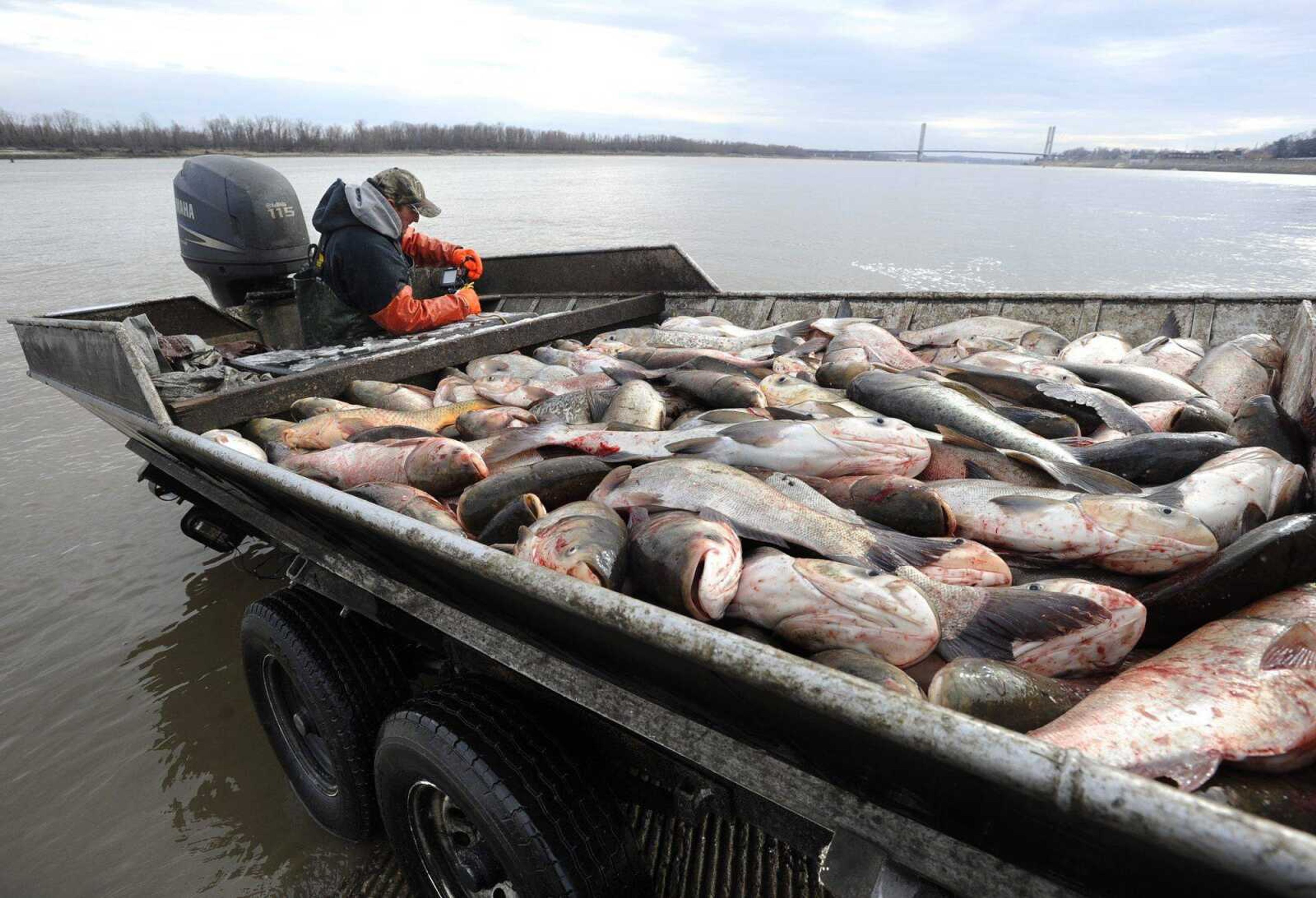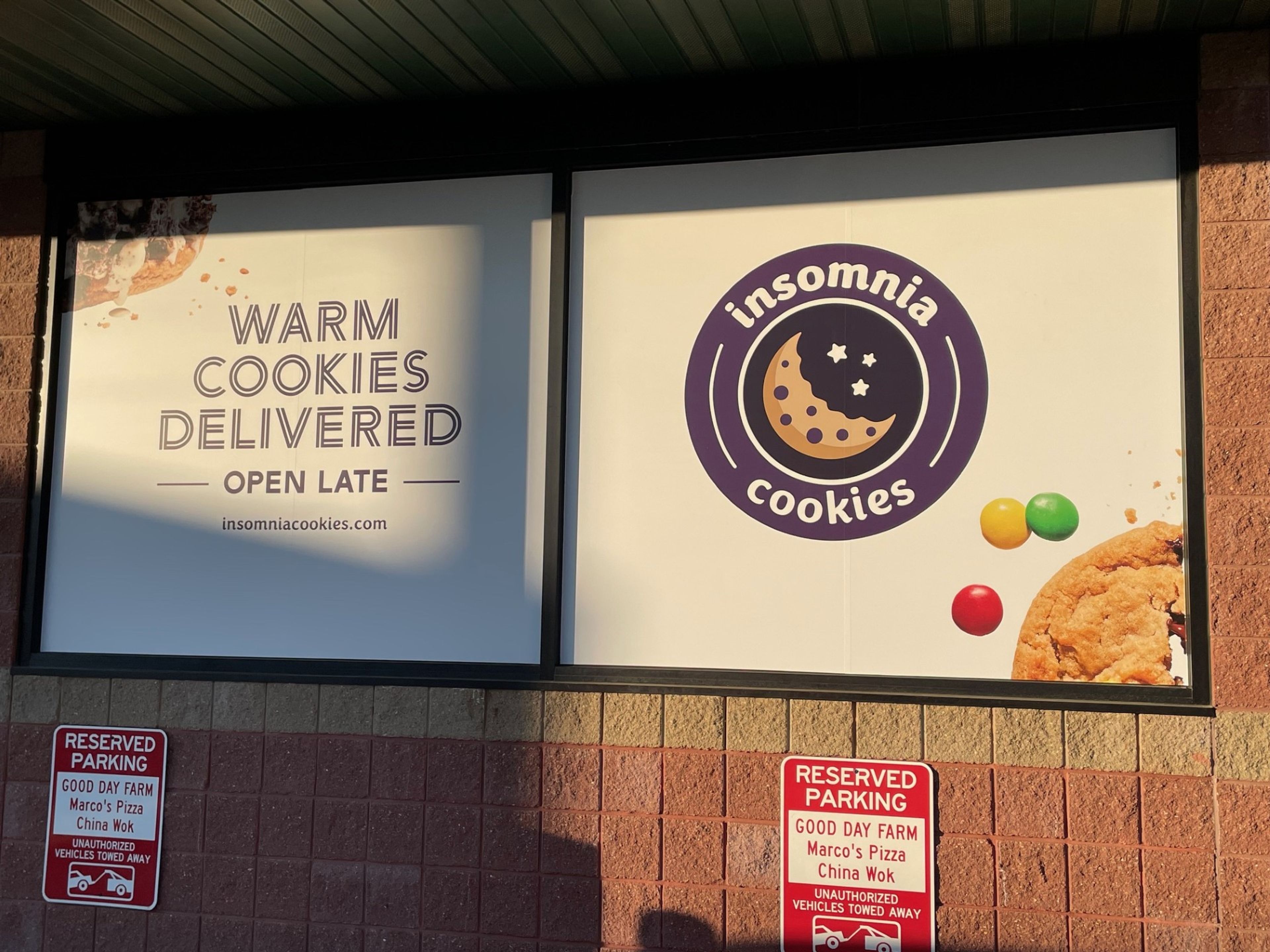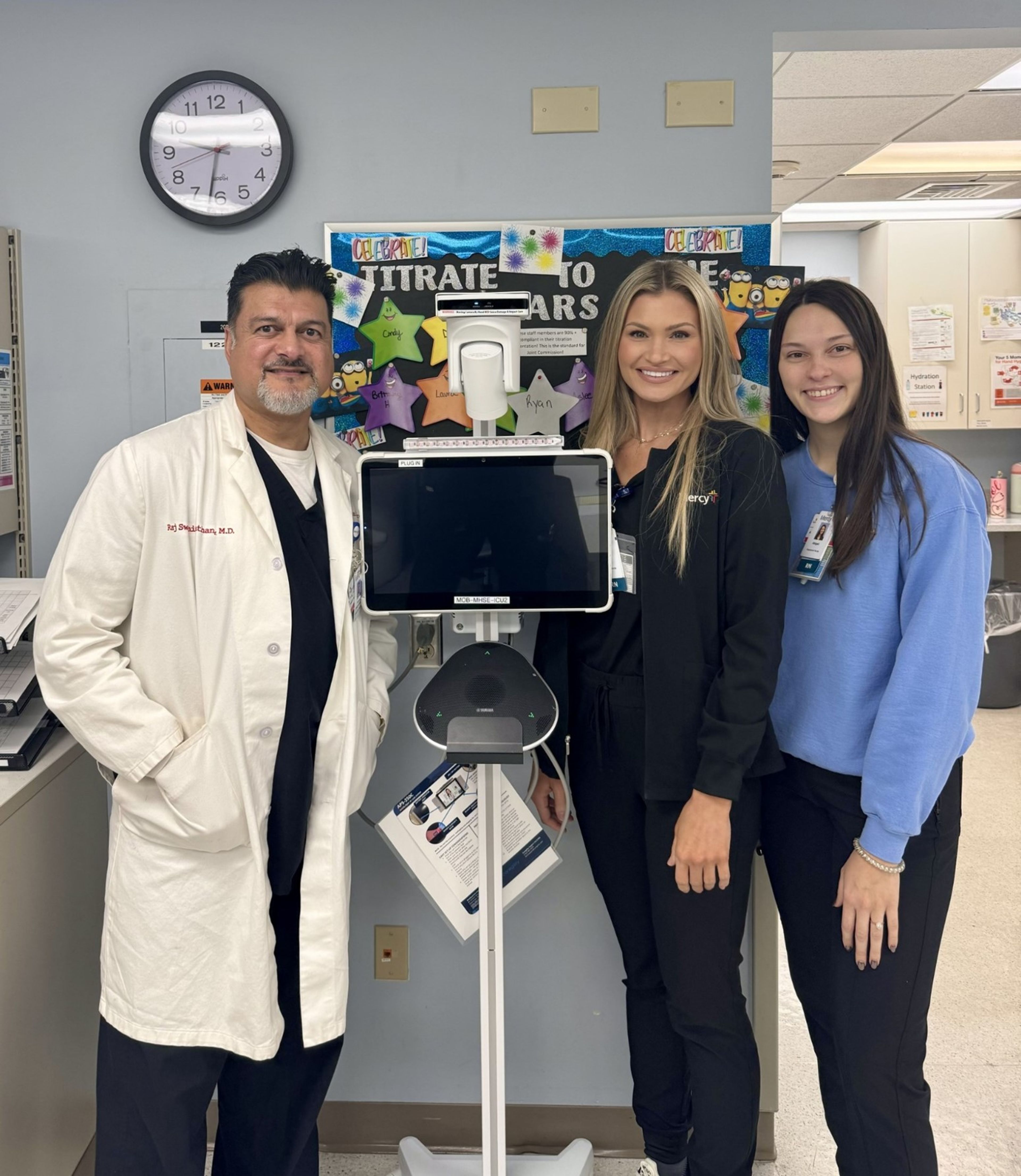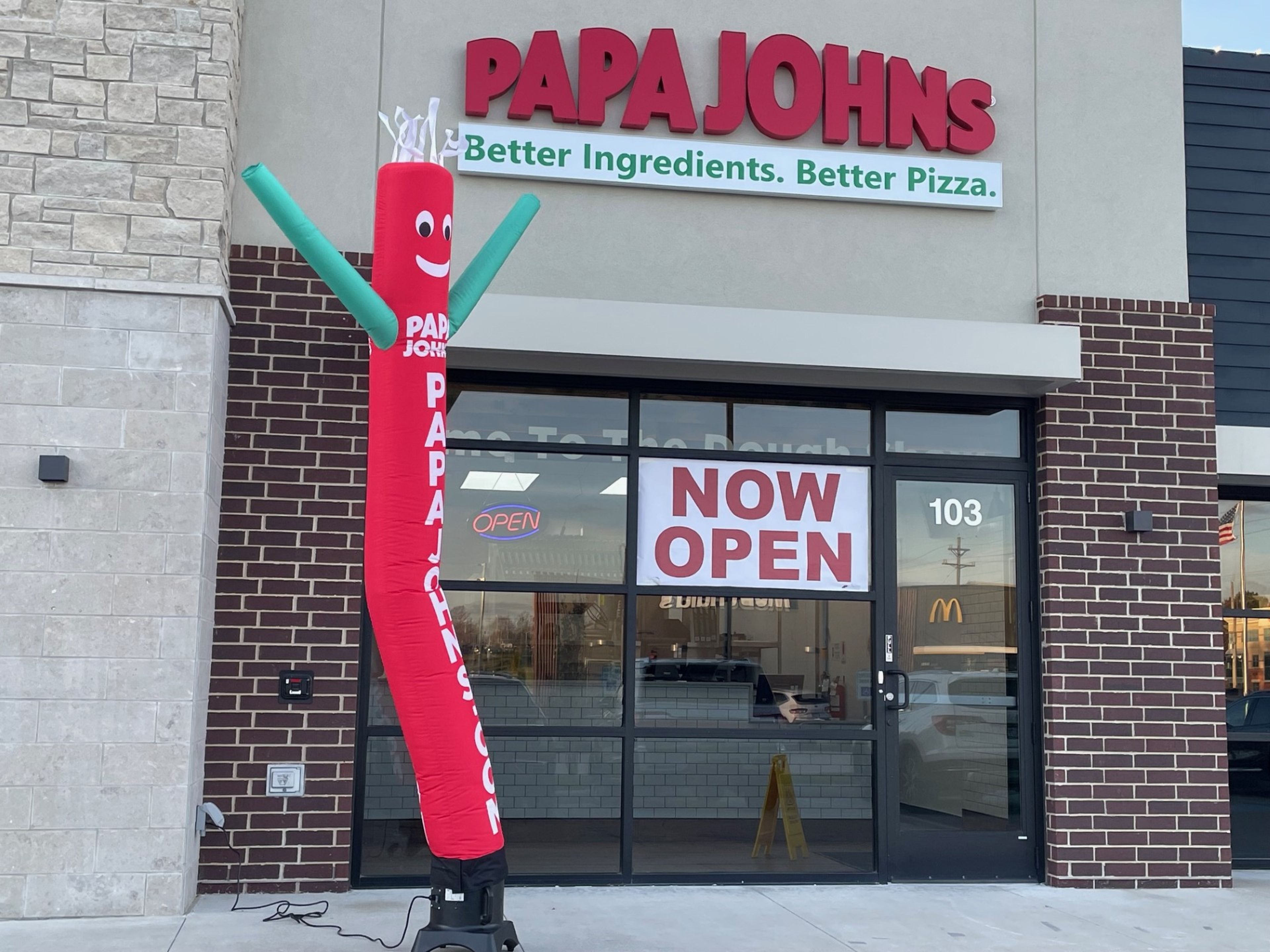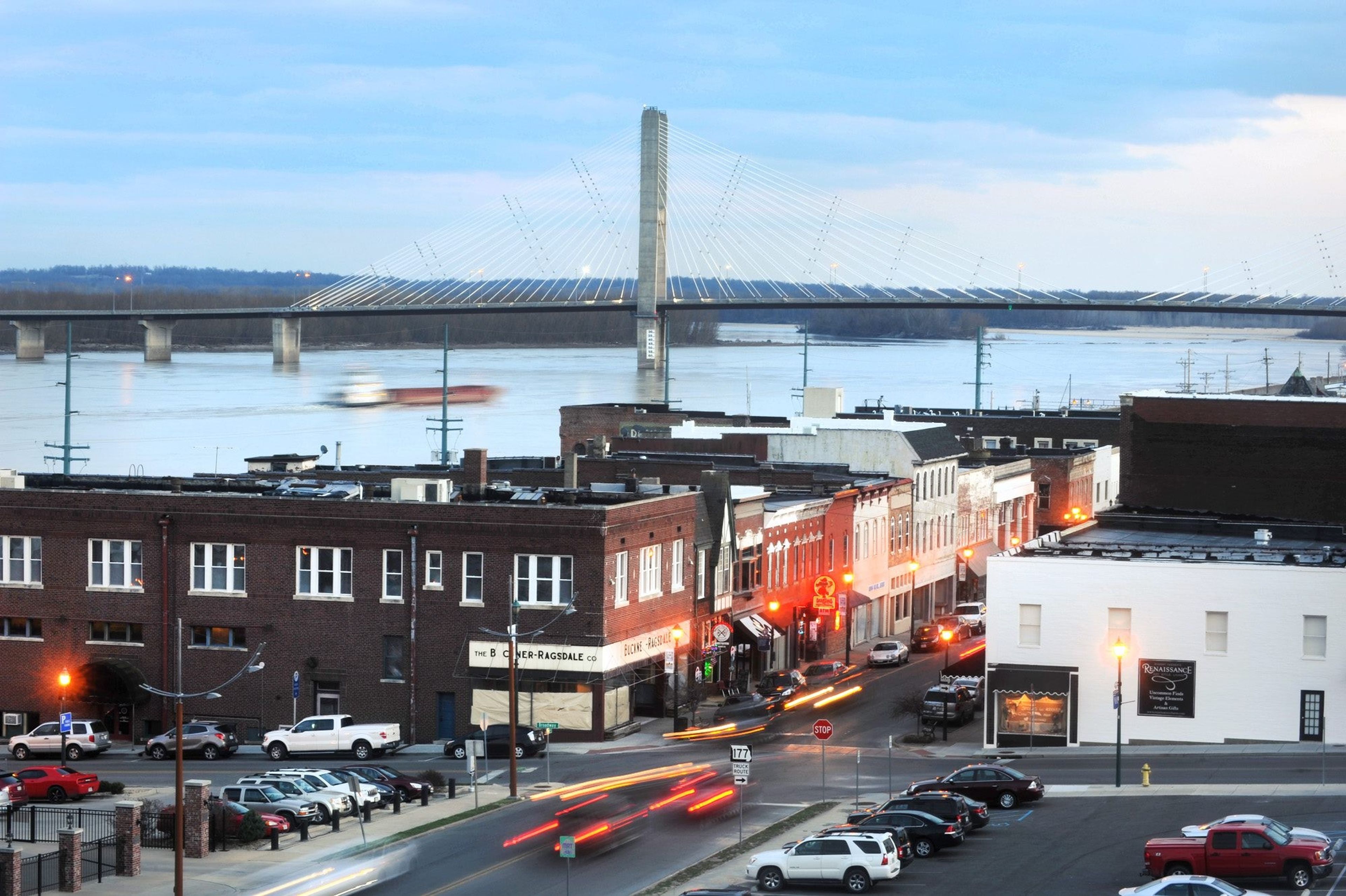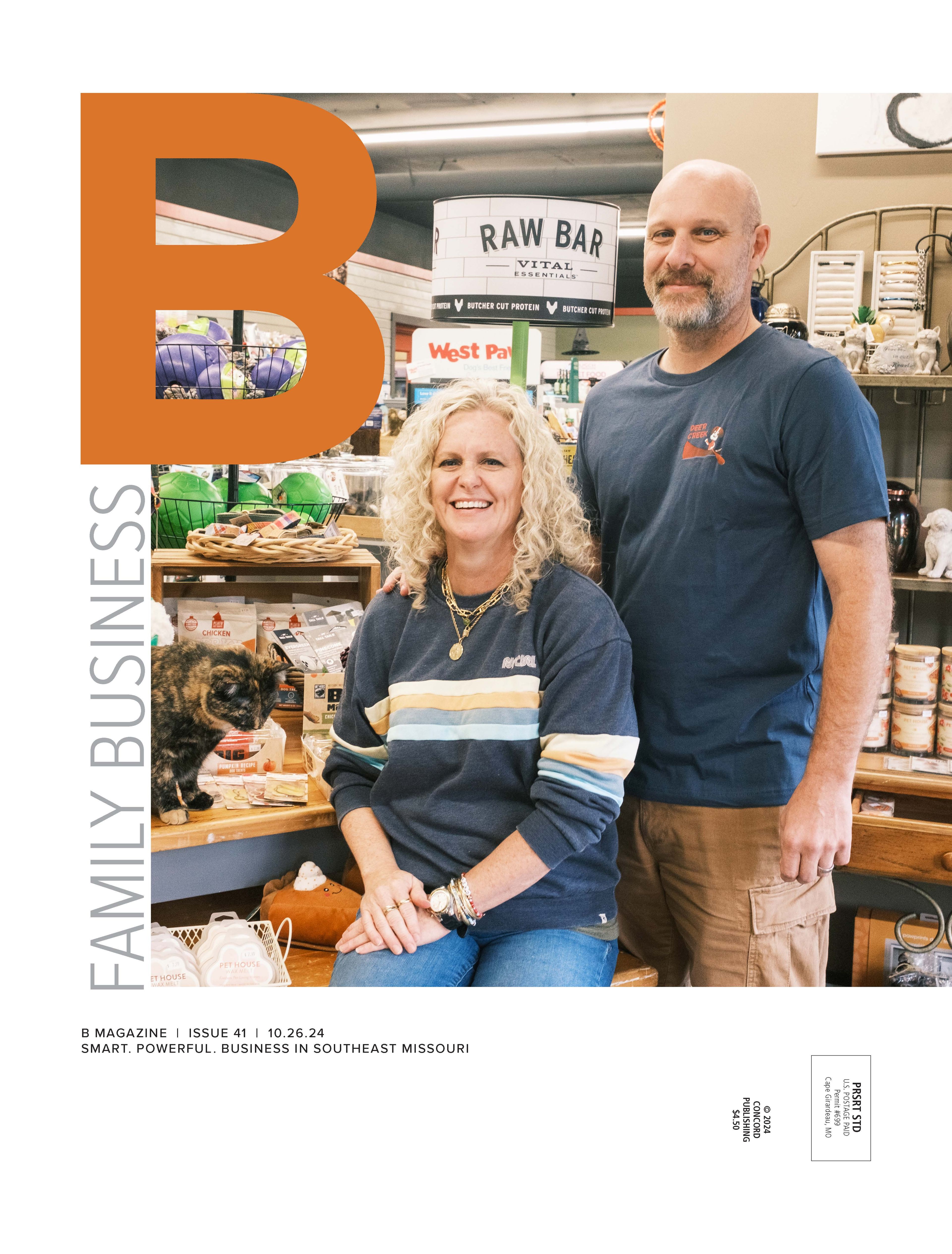Asian carp: Invaders to bring economic development to area
Two fisheries, one in western Kentucky and one planned for about 40 miles north of St. Louis, have very different business plans for the Asian carp market. What they have in common is a desire to help remove as many of the invasive fish as possible from area rivers and lakes and, in the process, help revive a troubled commercial fishing industry...
Two fisheries, one in western Kentucky and one planned for about 40 miles north of St. Louis, have very different business plans for the Asian carp market. What they have in common is a desire to help remove as many of the invasive fish as possible from area rivers and lakes and, in the process, help revive a troubled commercial fishing industry.
Two Rivers Fisheries opened May 30 in Wickliffe, Ky. The company plans to invest $2.5 million in the project, which includes leasing a 36,000-square-foot spec building.
Two Rivers CEO Angie Yu said the company can process 10,000 pounds of Asian carp each day with its current one-shift operation.
"We can do more than that. We just have our first phase now," Wu said.
Plans call for Two Rivers Fisheries to buy Asian carp from area commercial fishermen, process the meat, then blast-freeze it for shipment to Southeast Asia. Bi-products can be used to make fertilizer.
Yu said there is a huge market for carp in Asia, where most carp now available are farm grown.
"[Our] Asian carp, it tastes better because the carp here are wild," she said.
Yu said the company needs a market in Asia, however, as its prices will not be comparable to that for farm-raised carp in Southeast Asia and China.
"We don't have any problem to get the carp," she said, explaining Two Rivers currently is contracting with a few local commercial fishermen.
"We have a waiting list," Wu said. "The problem is the market. We must know where and how to market" in Asia.
She said 12 people currently are employed at the company's 36,000-square-foot facility. Wu said only about one-third of the building is being used in the company's first days.
In addition to jobs at the processing plant and commercial fishermen, Wu said there are indirect jobs, including truckers bringing supplies to the firm.
"We can bring fish to Asia, we create jobs, we also clean the water" of Asian carp, she said, adding the business is environmentally friendly.
Asian carp include four species; the bighead carp, black carp, grass carp and silver carp. What are known as common carp have been in the U.S. for more than 100 years. The invasive Asian carp species were introduced in the 1970s with the hope of controlling weed and parasite growth in lakes and rivers. A few managed to make their way into the Mississippi River and establish breeding populations.
With Asian carp filling the Illinois River, as well, conservation officials are in a desperate battle to keep them out of the Great Lakes. The problem is the aggressive fish, which reproduce very rapidly and are extremely long lived, eat plants native fish, such as catfish, need for food.
Gray Magee, CEO of American Heartland Fish Products, said commercial fishermen have suffered greatly because there has been no market for Asian carp, while native species are being pushed out.
Magee said in the Peoria, Ill., area on the Illinois River, "80 to 90 percent of their catch would be Asian carp, which they couldn't sell. It's a problem we hope we can help them with. Hopefully it will help put back to work an awful lot of commercial fishermen."
Not only will there be a market for Asian carp, the hope is other markets will improve.
"Hopefully it will allow the resurgence of native fish," Magee said.
He said American Heartland is waiting for the final OK of an economic assistance program from the state of Illinois before beginning construction in Grafton. Magee said the company expects an answer soon and will begin building its processing plant soon after word is received.
He explained he was not evaluating Two Rivers' business plan, but said "we looked at what they're doing [now] three years ago. We just didn't feel there was an established market for frozen Asian carp in China at that time. They've never really had frozen fish. They eat fish very fresh."
Magee said the many bones in Asian carp are not a problem in China, but it limits the market for selling the fish for human consumption here, as Americans do have a problem with bones.
American Heartland took a different path, partnering with Falcon Protein Products, which is associated with Auburn University. Magee said Falcon has a patented process and technique to render the carp into fish meal, fish oil and bone meal.
"You really can't take under 10-pound fish [for human consumption], because it's just not big enough, especially in China," he said. "Chinese don't want to eat small fish. We're taking the whole fish."
Magee said Heartland's business plan allows for the use of carp of all sizes.
Once the plant is up and running, the hope is to process 40,000 to 45,000 pounds of Asian carp daily.
Magee said American Heartland plans to work very closely with commercial fishermen.
"The commercial fishermen obviously are very important to our whole business plan," he said. "We're going to meet with fishermen and see what they want."
He outlined how the carp will be used after processing.
"The Asian carp has one of the highest protein levels of fresh water fish in the world and one of the highest of Omega-3 levels of fresh water fish," he said.
Omega-3, "that's a very popular additive that a lot of people use," Magee said.
Fish meal and bone meal will be added to livestock feed.
He's also excited because the company has a plant in Greensboro, Ala., that is processing catfish offal from 30,000 fish daily. He said that's giving them a chance to work out potential problems before the operation in Grafton is up and running. Magee said their process also is "green."
"There's no odor; there's no waste water problems," he said.
Magee said there's a worldwide market, including a domestic one, for the products that will come out of Grafton. He said if his company and others are able to reduce the Asian carp population to a manageable level, the rendering process used for carp can be used in the poultry and pork markets, as well.
"This is definitely something that is on the fringe of new technology," Magee said.
He said it's too early to tell, but he expects 10 to 20 people to be employed at the processing facility in Grafton.
"We're going to make a difference; that's what excited me as much as anything else," Magee said.
He and his two partners are Grafton businessmen who, he said, are passionate about improving the conditions of the rivers.
"It's a win-win situation," Magee said. "With our business plan, everyone wins; the local community wins, the fishermen win. It does what the federal government wants us to do, which is to remove all the Asian carp we can."
jpulliam@semissourian.com
388-3646
Pertinent address:
Wickliffe, Ky.
Grafton, Ill.
Connect with the Southeast Missourian Newsroom:
For corrections to this story or other insights for the editor, click here. To submit a letter to the editor, click here. To learn about the Southeast Missourian’s AI Policy, click here.

